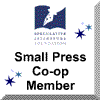Kelley Eskridge Talks about Dangerous SpaceWhat is Dangerous Space?It's my first collection of short fiction, representing nearly 20 years of writing - the first draft of the oldest story was written in 1988, and the most recent story was finished in 2007. It's my first chance to consider my short fiction as a body of work; I'm very excited about it. So what do you see when you put all the stories together?I see myself returning again and again to certain concerns, as if there are rooms I keep stepping farther into. It surprised me. I don't write "theme" (I think theme is the Ebola of writing: anything good just bleeds out when conscious theme takes over), and I've always treated these stories as separate entities (even the Mars stories). I didn't realize the extent to which they are siblings. These stories don't really land squarely in any particular genre; maybe that's part of the reason I've never noticed the relationships between them. I'm usually classified as a science fiction writer, but I think speculative or slipstream fiction are better terms for what I do. My work tends toward a tight focus on people who happen live in worlds different from the one I generally accept as 'real', although sometimes the difference is only a degree or two - an element of horror, a fantasy background, or a piece of technology that doesn't currently exist. Those things by themselves don't jazz me: I'm not looking for the next fantasy world to build or the next Big Idea. I use the speculative elements to write stories about difference without having to justify those differences: in speculative fiction, they simply become part of the landscape. I believe there's no better playground than speculative fiction for a writer who wants to explore metaphors of human experience. It's the place where we can make metaphor concrete: create alienation overtly, make literal the demons within that sometimes overwhelm us, assume it's possible to truly 'get inside' someone else's experience. I'm endlessly curious about the internal landscape and the limitless possibilities of human experience. We've all got dangerous space within us and between us. Exploring that space is a lot of what I'm about as a writer and a person. Does short fiction really matter anymore?I sure think so. Story is story; the point is to touch the reader in a way that's meaningful to her, whether it's to expand or reflect or challenge her view of herself and the world. Good story opens space inside the reader; any good story can do it. I'm weary of the "size matters" bias that permeates our artistic culture the same way it does so many other aspects of our lives. Why does everything have to be competitive? I've written poetry, short stories, essays, a novel, and a screenplay. They're all challenging forms. They all require skill, talent, commitment, and honesty. But as long as we reward artists financially for length, and equate word count with depth of meaning, short fiction will struggle for attention. I think the biggest part of that struggle is shelf life. Short fiction is ephemeral. There aren't the same macro-level marketing and distribution systems to bring them to the general attention of readers. Oprah will probably never have a short-story club, you know? One reason I wanted a collection of my work was so people could read it, pure and simple. I worked hard on these stories. I put the best of my creative self into them, and I don't want them to vanish. I'm hugely grateful to Aqueduct and other presses who invest such care and attention into extending the reach of short fiction. Who is Mars?Mars is the protagonist of three stories in this collection ("And Salome Danced", "Eye of the Storm", and "Dangerous Space"). All the stories put Mars into a variety of emotional and sexual configurations, and avoid direct reference to the character's biological sex and gender. Without those cues, the reader is free to read Mars as male or female, and therefore as straight or gay depending on who Mars is relating to emotionally and sexually in a particular story. And that's what I want. Mars isn't meant to be a puzzle for readers to solve, but a space into which any reader can fit themselves. Beyond the gender behavior that we all exhibit (or resist) is the basic human stuff: love, fear, sex, pain, hope, courage, joy.... I don't believe there are "like a woman" or "like a man" ways to feel these things. I'm not trying to make any points with Mars (I'm so not interested in writing as politics). I'm just having immense fun. It's incredibly freeing to write a character that I see equally often as male or female and with whom I identify in either case; who I simply live inside without worrying about the equipment or the chromosomes. I think all readers will assign gender to Mars. It's what we do; we look for similarity or difference to ourselves, and judge a character's behavior according to our expectations of that similarity or difference. But no matter how you read Mars in these stories, at some point you'll come to a place where the character breaks your expectations socially, emotionally, sexually… then you'll have to decide whether you can go there with Mars. I hope Mars is human enough, and the stories compelling enough, that you will. When the first Mars story, "And Salome Danced," was published, it generated an extensive and, to me, very interesting online discussion of gender. The story, the subsequent discussion, and an essay ("Identity and Desire") that I wrote in response were published in Women of Other Worlds: Excursions Through Science Fiction and Feminism, edited by Helen Merrick and Tess Williams. The editors and participants graciously gave me permission to republish the discussion and essay on my website for anyone who's interested in more about Mars. There will be more Mars stories. Your partner Nicola Griffith is a novelist and essayist. What's it like living with another writer?The short answer: fascinating, helpful, and not for the faint of heart. We work hard to make sure that our relationship isn't competitive. We support each other's growth and are ruthlessly honest about each other's work. It's about helping each other be the best writer possible. Nicola and I have written two essays together. "As We Mean To Go On" is an in-depth conversation between us about being writers and partners. It appeared in Bookmark Now, edited by Kevin Smokler, and is republished on Nicola's website for anyone who's interested in our take on our relationship. Our second essay, "War Machine," will appear in Queer Universes: Sexualities in Science Fiction (edited by Wendy Pearson, Veronica Hollinger, and Joan Gordon, coming from Liverpool University Press in 2008). It's a conversation of a different kind, about our identities as writers of fiction that is sometimes transgressive (in mainstream terms) about gender and sexual identity. I think all writers need the support of peers; I feel blessed to have all-hours access to someone whose talent and skill I respect, and whom I trust with all the vulnerabilities that go along with creative work-in-progress. I don't know how writers get by when no one close to them is able to give them meaningful criticism, when there's no one who understands what it's like to live inside story, to be driven by it to places that aren't always rational. What's on the horizon for you?
Now more than ever, writing. In the last year I've rediscovered my joy in writing, and found a passion for the work that I've never had before. It's intoxicating. I want more. I'll be teaching the Clarion West Writers Workshop in Seattle in early July. I love teaching and am very much looking forward to spending a week helping people improve their game in whatever way I can. |

